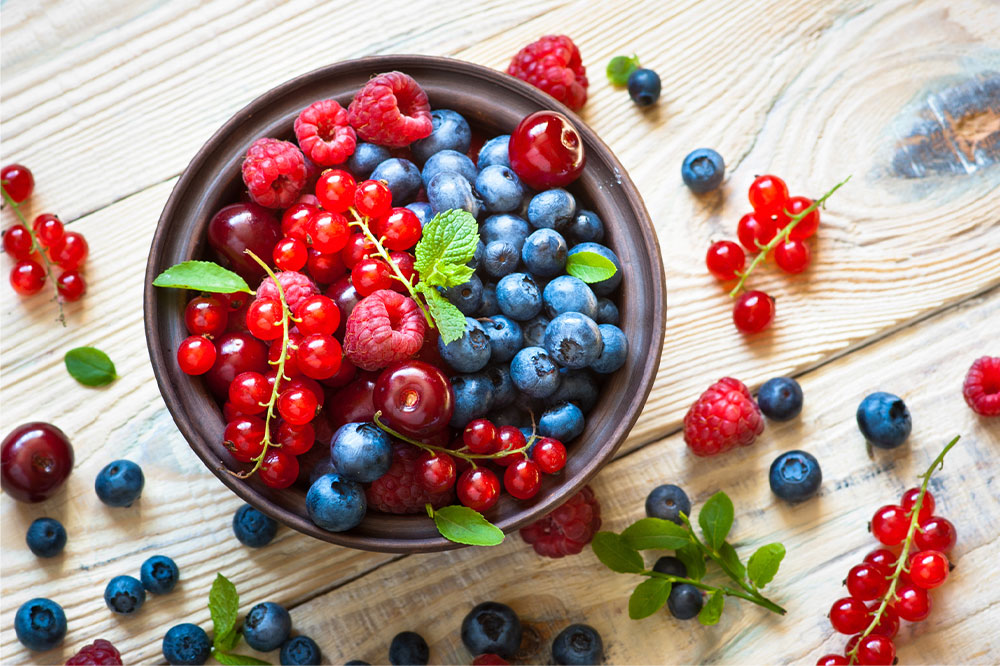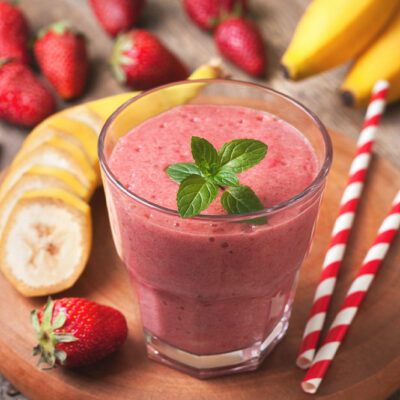13 metabolism-boosting vitamins

Metabolism is an essential body process wherein food is broken down into various nutrients to release energy. This energy is further utilized to support other critical functions, such as blood circulation, digestion, and respiration. If the metabolism is faster, calories are burned more quickly, releasing energy faster. Thus, everything that one eats throughout the day affects their metabolism. Furthermore, certain vitamins for adults can boost metabolism. Here are a few of them:
1. Thiamine (B-1)
B vitamins play a crucial role in the optimal functioning of the body’s metabolism. Thiamine, or vitamin B1, is necessary for the body’s cells to derive energy from carbohydrates. Thiamine is naturally present in several foods, including whole grains such as brown rice, salmon, black beans, and chicken. Additionally, certain foods, such as cereals and breads, are fortified with vitamin B1.
2. Riboflavin (B-2)
Vitamin B2, or riboflavin, is a water-soluble vitamin. It easily dissolves in water and passes through the bloodstream. The body can store only a limited amount of B2 vitamin; therefore, it is recommended to consume foods that contain this vitamin daily. These foods include dairy products, eggs, artichokes, avocados, currants, wheat bran, and cayenne pepper. The vitamin B2 in these foods breaks down fats, proteins, and carbohydrates to maintain energy levels and boost metabolism.
3. Niacin (B-3)
Vitamin B3, or niacin, comprises a group of compounds that play a crucial role in energy metabolism. It is mainly considered to be a major component of two coenzymes, NADP and NAD, which are involved in the function of cellular metabolism. Furthermore, niacin supports energy-generating enzymes in the body for converting food into energy. Additionally, the body requires B3 vitamin DNA repair by acting as an antioxidant. Niacin can be found in several food sources, such as fish, beef, chicken, turkey, chickpeas, lima beans, walnuts, almonds, soy, and seeds.
4. Pantothenic acid (B-5)
One of the many functions of pantothenic acid, or B5 vitamin, is to build coenzyme A, or CoA. This chemical compound is an enzyme in the body that makes and breaks down essential fatty acids. Furthermore, this vitamin is involved in performing metabolic functions. One can add vitamin B5 to meals through several foods, such as organ meats, beef, and chicken. Certain vegetables are also rich sources of pantothenic acid. These include broccoli, sweet potatoes, corn, cauliflower, mushrooms, avocado, and kale.
5. Pyridoxine (B-6)
Vitamin B6, or pyridoxine, is a water-soluble vitamin that plays an important role in several functions of the body. It is involved in the making of red blood cells as well as neurotransmitters in the body, such as epinephrine, dopamine, norepinephrine, and serotonin. This boosts brain health and is involved in stabilizing mood. Additionally, it helps the body break down fats, proteins, and complex carbohydrates into simple sugars. All of these release energy for various bodily functions. Although it involves many crucial functions, vitamin B6 cannot be naturally produced in the body. It has to be obtained through various food sources. These include banana, orange, papaya, cantaloupe, bitter melon, spinach, carrot, plantains, green peas, soybeans, and tempeh.
6. Biotin (B-7)
Biotin, or vitamin B7, is popularly known to improve hair, eye, and skin health. In addition, it is involved in improving metabolism. It breaks down fats and carbohydrates. Moreover, it synthesizes amino acids, which break down proteins for energy. One can add biotin to meals through various food choices. These include carrots, cauliflower, raspberries, peanuts, almonds, walnuts, and sunflower seeds. Other rich sources include salmon, sardines, tuna, eggs, oysters, meat, cheddar cheese, oats, and wheat.
7. Folate (B-9)
This B vitamin is naturally present in many foods. In fact, dark green leafy vegetables are one of the richest sources of folate. Turnip greens, romaine lettuce, spinach, Brussels sprouts, asparagus, and broccoli must be regularly added to meals to prevent folate deficiency. Other sources include beans, peanuts, fruit juices, whole grains, liver, and seafood. This vitamin not only improves metabolism but also plays a critical role in creating DNA and other gene-related materials in the body. Further, folate is required for cell multiplication, an important process in several bodily functions, such as skin cell renewal.
8. Cobalamin (B-12)
This B vitamin is generally found in animal-based foods such as fish, meat, poultry, dairy products, and eggs. Additionally, it can be found in fortified breakfast cereals and fortified nutritional yeasts that one can readily stock in their pantry for homemade bread and baked goods. Along with giving a boost to metabolism, cobalamin is essential for other functions in the body. These include the formation of red blood cells and DNA. In addition, the B-12 vitamin can help improve the function and development of the brain and nervous system.
9. Vitamin C
While most people increase their intake of vitamin C when they come down with the flu or cold, this nutrient also plays a vital role in improving the rate of metabolism. It not only helps to fight infection but also quickens the process of breaking down fats, carbs, and proteins in the body. Food rich in vitamin C can reduce oxidative stress, which invariably boosts the metabolic rate. Some good sources of vitamin C include kiwi fruit, oranges, bell peppers, pineapples, lemons, grapefruit, and cantaloupe.
10. Vitamin D
To optimize the metabolic rate in the body, vitamin D is another essential adult vitamin that one must take regularly. One of the best ways to get vitamin D is by exposing the skin to the early morning sun. However, this might not be possible for everyone. So, the next best source is nutrition. Some of the richest sources of vitamin D that one can include in their meals include cheese, egg yolk, yogurt, salmon, soy milk, and fortified cereals.
11. Calcium
This nutrient is not only good for the bones but also for improving metabolism. It does this by controlling blood sugar levels. One can add calcium to one’s meals by including milk, yogurt, fortified cereals, orange juice, dark green and leafy vegetables, seeds, and almonds.
12. Iron
Iron deficiency in the body impairs the oxygen supply to the different organs. This invariably affects the metabolic rate by slowing it down. Therefore, one must consistently add iron-rich foods to their meals. These foods include spinach, pumpkin seeds, eggs, oysters, dark chocolate, tofu, quinoa, turkey, and dried fruits.
13. Magnesium
Magnesium not only improves muscle function and skin health but also aids in chemical reactions that release energy through metabolism. As a result, the body requires sufficient levels of magnesium. This can be obtained through various food sources, such as bananas, cashews, avocados, brown rice, edamame, papaya, and blackberries.








